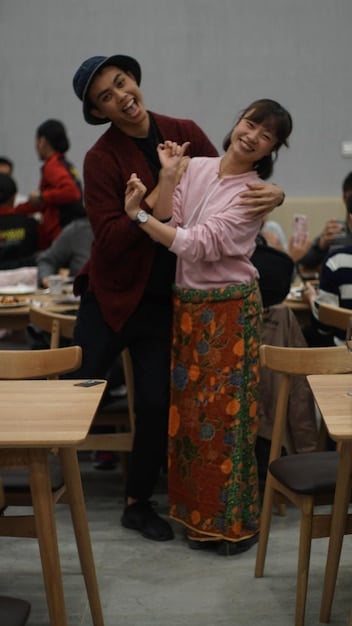Mexico’s New Education Policies: Impact on International Students

Understanding the implications of Mexico’s new education policies for international students is crucial to navigating changes related to enrollment, curriculum, and visa requirements, ensuring a smoother academic journey in the country.
Embarking on an international education journey is an exciting prospect, yet it comes with the need to understand the ever-evolving landscape of educational policies. For those considering Mexico, staying abreast of recent shifts is paramount. This article aims to provide a comprehensive guide on understanding the implications of Mexico’s new education policies for international students, offering clarity on what these changes might mean for your academic aspirations.
Advertisements
Understanding the Landscape of Mexico’s Educational Reforms
Mexico’s education system is dynamic, undergoing periodic reforms aimed at improving quality, equity, and access. These changes are often driven by national development goals, global educational trends, and societal needs. For international students, understanding the broad strokes of these reforms is the first step toward deciphering their direct impact. These policy shifts can touch upon various aspects, from curriculum design to accreditation processes and even funding structures.
Recent reforms have emphasized principles of inclusion and human rights, aiming to make education more accessible and equitable for all, including foreign nationals. This involves a commitment to aligning educational practices with international standards, which can be a boon for students seeking globally recognized qualifications. However, such alignment also implies adherence to new administrative and academic protocols that differ from previous frameworks. The intent is to enhance the overall educational experience and ensure that Mexican institutions remain competitive on the world stage.
Key Governmental Bodies and Their Roles
Several governmental bodies play pivotal roles in shaping and implementing Mexico’s education policies. Awareness of these entities is crucial for international students when seeking official information or needing to navigate bureaucratic processes.
- Secretaría de Educación Pública (SEP): This is the primary federal agency responsible for national education policy, curriculum development, and oversight of public and private educational institutions.
- Secretaría de Relaciones Exteriores (SRE): The Ministry of Foreign Affairs handles diplomatic relations, including visa policies and international agreements that affect student mobility.
- Instituto Nacional de Migración (INM): This body is responsible for immigration matters, including the issuance and regulation of student visas and residency permits.
Navigating the requirements and procedures set forth by these organizations is essential. Each plays a distinct yet interconnected role in the international student’s journey, from initial application to ongoing compliance with Mexican law. Understanding their mandates empowers students to proactively address administrative needs.
The continuous evolution of these policies underscores the importance of consulting official government websites and reputable educational advisors. Policies are often introduced with transitional periods, allowing institutions and students to adapt. However, being informed from the outset can significantly reduce potential complications and ensure a smooth integration into the Mexican academic environment. This proactive approach is key to leveraging the opportunities presented by Mexico’s welcoming educational landscape.
Impacts on Admissions and Enrollment Procedures
The new Mexican education policies have introduced several modifications to the admissions and enrollment processes for international students. These changes are primarily designed to streamline applications, standardize requirements, and ensure that all incoming students meet a consistent set of academic and legal criteria. While some adjustments aim to simplify the process, others may require more meticulous attention to detail on the part of applicants.
One notable shift is the increased emphasis on verifying the authenticity and equivalence of foreign academic credentials. Mexican institutions are now more rigorously assessing transcripts, diplomas, and other academic documents to ensure they align with the Mexican education system’s standards. This often necessitates official translations and, in some cases, validation by the SEP or relevant professional bodies. Students should anticipate longer processing times for these evaluations.
Credential Validation and Equivalency
The process of validating foreign credentials has become a more central component of the admission process. This ensures that international qualifications are recognized appropriately within the Mexican framework. Key aspects include:
- Apostille or Legalization: Most documents originating from countries party to the Hague Apostille Convention will require an Apostille. For others, a full consular legalization process might be necessary.
- Official Translations: All non-Spanish documents must be translated by a certified translator recognized by Mexican authorities. Unofficial translations are typically not accepted.
- SEP Endorsement: For certain academic levels or programs, the Secretaría de Educación Pública may need to issue an official equivalency statement, confirming the foreign degree’s standing in Mexico.
These requirements aim for uniformity and prevent discrepancies in academic recognition. Early preparation and verification of these documents are crucial for prospective students to avoid delays in their admission.
Furthermore, institutions may now have more autonomy in setting specific entrance examinations or prerequisite courses for international applicants, particularly for specialized fields. This customization ensures that students are well-prepared for the academic rigor of their chosen programs. While general admission requirements are often standardized by national policy, individual universities might add layers of specific criteria based on their academic programs’ demands. Therefore, direct communication with the admissions office of the target institution remains indispensable for obtaining the most accurate and up-to-date information.
These evolving admissions procedures reflect Mexico’s commitment to enhancing the quality of its international student body and integrating them effectively into its academic environment. Students who meticulously prepare their documents and understand the updated requirements will find their path to enrollment significantly smoother.
Changes in Curriculum and Academic Programs
Mexico’s new education policies extend beyond administrative procedures, prompting significant shifts in the curriculum and academic programs offered by universities. These reforms are geared towards fostering a more competency-based education, emphasizing critical thinking, problem-solving, and interdisciplinary approaches. For international students, this means an evolving academic experience, potentially offering new opportunities for specialized learning and research, but also requiring adaptation to new pedagogical methods.
There is a growing push for programs to integrate broader societal and global challenges, such as sustainability, digital literacy, and cultural diversity. This reflects a national commitment to producing graduates who are not only academically proficient but also globally aware and socially responsible. International students, often bringing diverse perspectives, are uniquely positioned to contribute to and benefit from this enriched learning environment.
Focus on Competency-Based Learning
A core element of the new policies is the shift towards competency-based learning, which moves beyond rote memorization to focus on practical skills and real-world application. This approach structures courses around specific learning outcomes, ensuring students acquire measurable abilities.
- Applied Projects: More weight on projects that solve real-world problems, often in collaboration with local industries or communities.
- Interdisciplinary Studies: Encouragement of combining subjects from different fields to gain a holistic understanding of complex issues.
- Skill Development: Emphasis on developing soft skills like communication, teamwork, and adaptability, crucial for global careers.
These changes aim to make graduates more employable and better equipped for the demands of the modern workforce. International students should look for programs that align with their career goals and capitalize on these new pedagogical trends.

Furthermore, there is an increased emphasis on research and innovation within academic institutions. New policies often promote stronger links between universities and the private sector, potentially leading to more internship opportunities and practical research experiences for students. International students interested in research-intensive programs may find these developments particularly appealing, as they open avenues for contributing to cutting-edge projects and building professional networks. Universities are also investing in better infrastructure, including advanced laboratories and digital learning platforms, to support these ambitious academic goals.
While the core disciplines remain, the way they are taught and assessed is undergoing transformation. Students might encounter more collaborative assignments, case studies, and field work, moving away from purely lecture-based instruction. Adapting to these new academic methods, which might differ from their home countries, will be a key aspect of their success. However, these changes ultimately aim to provide a richer, more practical, and globally relevant education.
Visa and Immigration Policy Adjustments
For international students, navigating visa and immigration policies is often one of the most critical aspects of studying abroad. Mexico’s new education policies, while primarily focused on the academic framework, often trigger corresponding adjustments in immigration regulations to facilitate or regulate the entry and stay of foreign students. These changes are crucial for ensuring legal compliance and a seamless academic journey.
Recent shifts have aimed at standardizing the requirements for student visas and residency permits, often with an emphasis on financial solvency and clear academic intent. While the process may seem straightforward, detailed documentation and adherence to specific timelines are paramount. Any oversight could lead to delays or, in some cases, denial of entry or stay.
Key Documentation Requirements
The updated policies often specify more stringent requirements for the documentation needed to obtain and maintain a student visa. Students must be prepared to submit comprehensive proof of their intent and capability to study in Mexico.
- Proof of Acceptance: An official letter of acceptance from a recognized Mexican educational institution is non-negotiable. It must specify the program, duration, and full-time status.
- Financial Solvency: Evidence demonstrating sufficient funds to cover tuition, living expenses, and health insurance for the duration of the studies is crucial. The required amounts are typically well-defined and may vary based on visa type and length of stay.
- Clean Criminal Record: Most visa applications will require a police clearance certificate from the applicant’s home country and any country where they have resided for a significant period.
These documents must often be apostilled or legalized and translated into Spanish by a certified translator. Incomplete or improperly prepared documentation is a leading cause of visa application delays.
Furthermore, policies regarding part-time work or internships for international students can also see adjustments. While student visas primarily permit study, there might be specific provisions for engaging in practical training or limited employment, subject to rigorous conditions. These conditions are typically designed to ensure that any work undertaken complements the student’s academic pursuits and does not detract from their primary purpose of study. Students should closely review the specific visa category they are applying for to understand any work allowances and restrictions.
Changes in reporting obligations to the Instituto Nacional de Migración (INM) might also be put in place, requiring students to update their status or address promptly. Failure to comply with these reporting requirements can lead to penalties, including fines or visa revocation. Staying informed about the latest INM guidelines through official channels is therefore as important as securing initial visa approval. These constant policy updates underscore the need for international students to remain vigilant and proactive throughout their stay in Mexico.
Financial Implications and Scholarship Opportunities
The financial aspect of studying abroad is often a primary concern for international students. Mexico’s new education policies can have various financial implications, affecting tuition fees, living costs, and the availability of scholarships. While some policy changes might lead to increased administrative fees or revised tuition structures, others may open new avenues for financial aid and support, particularly for students pursuing fields aligned with national development priorities.
Understanding these financial shifts is essential for effective budgeting and securing necessary funds. International students should meticulously research the cost of living in various Mexican cities, as this can vary significantly, and factor in potential changes to tuition as a result of policy updates. Some reforms might encourage private institutions to adjust their fee structures, while public universities could also see changes based on governmental funding allocations.
Scholarship Opportunities and Eligibility
Despite potential cost adjustments, Mexico remains a relatively affordable study destination compared to many other countries, and new policies may even enhance scholarship availability. Awareness of available financial aid programs is key.
- Government Scholarships: Mexican government bodies, particularly through the Secretaría de Relaciones Exteriores (SRE) and CONACYT (National Council of Science and Technology), often offer scholarships for international students, usually at the postgraduate level or for research.
- University-Specific Scholarships: Many Mexican universities offer their own merit-based or need-based scholarships, some specifically tailored for international applicants.
- Bilateral Agreements: Scholarships may also be available through agreements between Mexico and the student’s home country, often administered by their respective governments or embassies.
Eligibility criteria for these scholarships can be stringent, often requiring high academic achievement, proof of financial need, or enrollment in specific priority programs. Early application is generally advised, as these opportunities are highly competitive.
Moreover, the cost of health insurance is another important financial consideration, and new policies might make health coverage a mandatory requirement for all international students. While some universities may offer their own health plans, students might also need to secure private insurance that meets Mexican regulatory standards. This is a crucial element to factor into the overall budget, as healthcare costs can be substantial without proper coverage.
Policy shifts can also influence international currency exchange rates, impacting the cost of living for students whose home currency fluctuates against the Mexican peso. Therefore, a proactive approach to financial planning, including investigating all available funding options and understanding potential cost increases, is paramount for a successful and financially stable study experience in Mexico.
Student Support Services and Integration Programs
The experience of studying abroad extends beyond academics; it encompasses adapting to a new culture, language, and social environment. Mexico’s new education policies increasingly recognize the importance of comprehensive student support services for international students, aiming to facilitate their integration and ensure their overall well-being. These policies acknowledge that a supportive environment is crucial for academic success and a positive study abroad experience.
Universities are being encouraged or mandated to enhance their support structures, ranging from pre-arrival information to ongoing academic and personal counseling. This includes providing resources for language acquisition, cultural orientation, and assistance with legal and immigration matters upon arrival. The goal is to minimize culture shock and help international students feel quickly at home in their new surroundings.
Key Areas of Enhanced Support
New policies often highlight specific areas where student support for international students should be strengthened, addressing common challenges faced by foreign nationals.
- Orientation Programs: Comprehensive sessions upon arrival cover academic expectations, campus resources, safety guidelines, and cultural norms.
- Language Support: Offering Spanish language courses, tutoring, or conversation partners to help students improve their linguistic proficiency for daily life and academic needs.
- Mental Health and Well-being: Providing access to counseling services, mental health resources, and peer support networks tailored to the specific needs of international students.
- Immigration and Legal Advice: Assisting students with visa renewals, legal procedures related to their stay, and understanding local regulations.
These services are critical for ensuring that international students can focus on their studies without undue stress from administrative or personal challenges.

Moreover, there’s a growing emphasis on creating robust integration programs that foster interaction between international and local students. This might involve setting up cultural exchange events, buddy programs, or student clubs that promote diversity and cross-cultural understanding. Such initiatives benefit not only international students by helping them build social networks but also local students by broadening their global perspectives. These programs are vital for building a cohesive and inclusive campus community.
The policies also push for better communication channels, ensuring that information regarding academic progress, campus events, and available support services is clearly disseminated to international students. Many universities now have dedicated international student offices that serve as a central point of contact for all student-related inquiries and support. This centralized approach aims to provide timely and accurate information, empowering students to make informed decisions and access help whenever needed. The enhanced focus on support services reflects Mexico’s commitment to creating a welcoming and productive educational environment for students from around the world.
Future Outlook and Recommendations for Prospective Students
The evolving landscape of Mexico’s education policies presents both challenges and opportunities for international students. Looking ahead, it is clear that Mexico aims to solidify its position as a prominent destination for global education, continuously refining its systems to attract diverse talent. The future outlook suggests a continued emphasis on quality assurance, internationalization, and robust student support, but also a dynamic regulatory environment that requires vigilance from prospective and current students.
Policy reforms are rarely static; they tend to adapt to global trends, national priorities, and feedback from the educational community. Therefore, prospective students should expect a continuous, albeit gradual, evolution of requirements and opportunities. This necessitates a proactive and informed approach to planning and enrollment, ensuring that students are well-prepared for any anticipated changes well before their arrival.
Recommendations for Prospective Students
Given the dynamic nature of these policies, several key recommendations can help international students navigate their journey successfuly.
- Stay Updated: Regularly check official websites of the SEP, SRE, and INM, as well as your target university’s international office, for the latest policy updates and guidelines.
- Consult Experts: Seek advice from educational consultants specializing in Mexican education or student advisors at Mexican embassies/consulates in your home country.
- Prepare Thoroughly: Begin the application process well in advance, ensuring all required documents are meticulously prepared, translated, and legalized as per current guidelines.
- Financial Planning: Develop a comprehensive financial plan that accounts for tuition, living expenses, health insurance, and potential fluctuations, and explore all available scholarship opportunities.
- Engage and Adapt: Once in Mexico, actively participate in orientation programs and campus activities to facilitate cultural integration and adapt to new academic methods. Utilize student support services whenever needed.
These proactive steps will significantly enhance the international student experience in Mexico, minimizing potential disruptions and maximizing academic and personal growth.
The long-term vision for Mexican education policies appears to be one of increased international collaboration and specialization. This might translate into more joint degree programs with foreign universities, expanded opportunities for research partnerships, and greater recognition of Mexican qualifications globally. For international students, this means the potential for a more enriched academic experience and enhanced career prospects upon graduation. However, it also means that the bar for entry and academic performance might continue to rise in certain competitive fields.
Ultimately, a successful international student journey in Mexico hinges on meticulous preparation, continuous information gathering, and a flexible mindset. By understanding the implications of these new policies and proactively addressing potential challenges, students can fully leverage the rich cultural and academic opportunities that Mexico offers, contributing to its vibrant educational landscape and achieving their personal and professional goals.
| Key Aspect | Brief Description |
|---|---|
| 📚 Admissions Changes | Increased scrutiny on foreign credential validation and authenticity, potentially longer processing times. |
| 🎓 Curriculum Evolution | Shift towards competency-based learning, interdisciplinary approaches, and enhanced research focus. |
| ✈️ Visa & Immigration | More standardized requirements for student visas, emphasizing comprehensive documentation and financial stability. |
| 💵 Financial Landscape | Potential tuition adjustments and enhanced scholarship opportunities, especially in priority areas. |
Frequently Asked Questions
▼
Generally, new policies are forward-looking. However, check with the INM or your university’s international office. Minor adjustments might apply to existing visas, especially for renewals, regarding reporting changes or updated financial requirements. It’s crucial to stay informed and address any new compliance needs promptly.
▼
The new policies emphasize credential validation and equivalence. Your degree should still be recognized, but the process for official validation by SEP or other bodies might have become more stringent.Ensure your documents are apostilled/legalized and officially translated as per the latest requirements for seamless recognition.
▼
While policies may lead to changes in tuition, there’s also a growing focus on attracting talent. This can result in enhanced scholarship opportunities, particularly for postgraduate studies or fields aligned with Mexico’s development goals. Always check government and university websites for updated scholarship listings and eligibility criteria.
▼
The shift means more emphasis on practical skills and real-world application, rather than just theoretical knowledge. You might encounter more project-based assessments, group work, and interdisciplinary studies. Adaptability is key; engage actively in class, utilize academic support, and embrace the new learning methods for a richer educational experience.
▼
The most crucial step is to stay continuously updated by consulting official sources like the Mexican Foreign Affairs Ministry (SRE), the National Migration Institute (INM), and the international office of your chosen university. Policies can evolve, and proactive verification of requirements is essential for a smooth application and study experience.
Conclusion on Mexico’s Educational Policy Shifts
The journey of understanding the implications of Mexico’s new education policies for international students reveals a landscape continually refined to enhance academic quality, accessibility, and international recognition. These reforms, while introducing new administrative and academic considerations, ultimately aim to provide a more robust and globally competitive educational experience. For prospective and current international students, adapting to these changes through meticulous preparation, continuous information gathering, and leveraging available support services is paramount. Mexico’s commitment to fostering a welcoming and enriching academic environment ensures that, with careful navigation, international students can thrive and achieve their educational aspirations within this vibrant nation.





